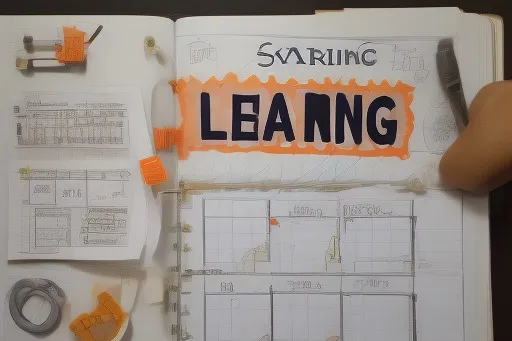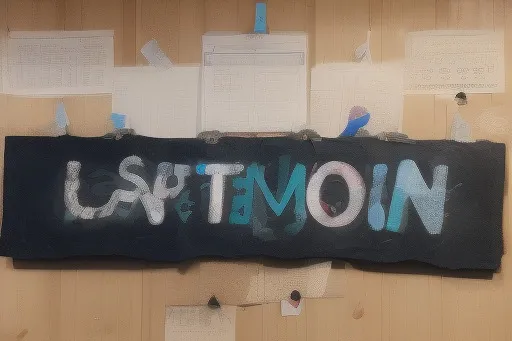Social Work Learning Plan Examples


In this article, we will explore various examples of social work learning plans. A social work learning plan is a document that outlines the specific tasks and activities that a social worker should undertake to develop their professional skills and competencies.
These plans are essential for social workers to enhance their knowledge, skills, and abilities in order to provide effective support and intervention to individuals, families, and communities.
What is a Social Work Learning Plan?
A social work learning plan is a roadmap that guides social workers in their professional development journey. It helps social workers identify areas of growth, set goals, and plan specific activities to enhance their knowledge and skills.
These plans are often tailored to individual social workers, taking into account their areas of interest and the specific populations they work with.
The goal of a social work learning plan is to ensure that social workers have the necessary knowledge, skills, and competencies to provide effective and culturally sensitive services to their clients. By continuously learning and developing, social workers can stay updated with the latest research, best practices, and ethical standards in the field.
Components of a Social Work Learning Plan
A social work learning plan typically includes the following components:
-
Identification of Learning Needs: Social workers assess their own learning needs by reflecting on their practice, identifying areas where they need to enhance their knowledge or skills. This may involve self-assessment tools, feedback from supervisors or colleagues, and consultation with experts in the field.
-
Learning Goals: Social workers set specific and measurable learning goals based on their identified learning needs. These goals should be aligned with the social worker’s professional aspirations and the needs of their clients.
-
Learning Activities: Social workers plan and engage in various learning activities to achieve their learning goals. These activities may include attending workshops or conferences, participating in trainings, reading scholarly articles, conducting research, or seeking supervision and consultation from experienced practitioners.
-
Timeline: A social work learning plan includes a timeline for completing the identified learning activities. This helps social workers stay organized and motivated to achieve their goals within a specified time frame.
-
Evaluation of Learning Outcomes: Social workers evaluate the effectiveness of their learning activities and assess their progress towards achieving their learning goals. This may involve self-reflection, feedback from supervisors or colleagues, and formal evaluations or assessments.
Examples of Social Work Learning Plans
To provide a clear understanding of what a social work learning plan entails, let’s explore a few examples:
Example 1 – Developing Ethical and Professional Behavior
Learning Goal: Demonstrate ethical and professional behavior in social work practice.
Learning Activities:
– Review the NASW Code of Ethics and analyze how it applies to real case examples.
– Familiarize oneself with the agency’s policies and procedures and ensure adherence to them in practice.
– Seek supervision and guidance from experienced social workers to gain insights into ethical dilemmas and their resolution.
Timeline: 6 months
Outcome Evaluation: Reflect on ethical decision-making process and document lessons learned from real case examples.
Example 2 – Establishing Empathic Social Work Boundaries
Learning Goal: Develop and maintain empathic but clear boundaries in social work practice.
Learning Activities:
– Attend workshops or trainings on establishing professional boundaries in social work.
– Practice boundary-setting techniques during intakes, interviews, direct care interactions, and discharge planning.
– Seek supervision and consultation to address challenges and enhance boundary-setting skills.
Timeline: 3 months
Outcome Evaluation: Reflect on boundary-setting practices and document improvements in maintaining clear boundaries while demonstrating empathy.
Example 3 – Enhancing Cultural Competence
Learning Goal: Improve cultural competence to effectively work with diverse populations.
Learning Activities:
– Attend cultural competency trainings and workshops.
– Engage in self-reflection and self-assessment to identify personal biases and stereotypes.
– Seek opportunities to work with diverse populations and gain firsthand experience in navigating cultural differences.
Timeline: 1 year
Outcome Evaluation: Identify changes in attitudes, knowledge, and skills related to cultural competence through self-assessment and feedback from colleagues or clients.
Conclusion
In conclusion, social work learning plans are essential tools for social workers to continuously develop their knowledge and skills in the field. These plans help social workers identify their learning needs, set goals, and plan specific activities to enhance their practice.
By committing to ongoing learning and professional development, social workers can provide high-quality services to meet the diverse needs of their clients.
Recommended Product: NASW Code of Ethics Book
To deepen your understanding of social work ethics and to have a comprehensive resource for applying ethical principles to real-life cases, we recommend the NASW Code of Ethics book. This book serves as a valuable guide for social workers to navigate complex ethical dilemmas and ensures adherence to the highest standards of professional conduct.
You can find the NASW Code of Ethics book on Amazon here.


Remember, continuous learning and growth are essential for social workers to provide effective and ethical services. Incorporate a social work learning plan into your professional journey to enhance your practice and make a positive impact on the lives of those you serve.




